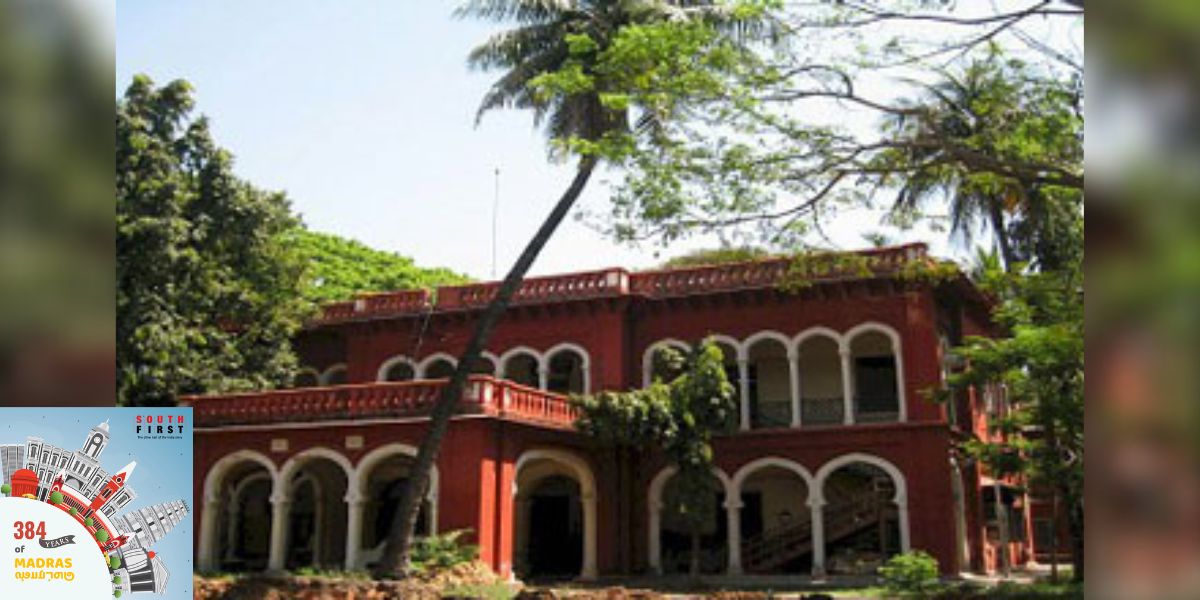Through its extraordinary archive collection, the Tamil Nadu Archives Library has been connecting generations to their Madras heritage.

The Tamil Nadu Archives Department Library was established in 1923. (TNarchives)
In the heart of Chennai, a treasure trove of history and cultural heritage quietly resides, waiting to reveal the secrets of Madras’s vibrant past.
The Tamil Nadu Archives Department Library, an unassuming haven for knowledge seekers, stands as a living testament to the city’s multifaceted history and global influences.
As we celebrate Madras Week, South First embarked on a journey into this extraordinary repository and discovered how it preserves the essence of Madras while connecting people to their ancestral roots.
Amid Egmore’s busy streets, the Tamil Nadu Archives Department Library serves as a knowledge sanctuary, holding an incredible collection of 2,31,752 records, including books, journals, and reports in both Tamil and English.
But this isn’t just an ordinary collection — it’s a portal to the past, containing primary and secondary sources that narrate the tale of Madras’s evolution over time.

The library has a collection of 2,31,752 records. (KV Navya/South First)
“From researchers to families tracing their ancestral lineage, the library offers a haven for those in search of their roots,” shares E Jegan Parthiban, librarian at the Archives for a decade now.
“After prior permission is sought and approved, the library meticulously assists individuals,” he says.
In this manner, people can reconstruct the narratives of their grandparents and great-grandparents, who once called Madras their home.
The enchantment of the Tamil Nadu Archives Department Library resides in its ability to bring families together with their ancestral narratives.
“Stories emerge from distant corners of the world,” explains Jegan.
For instance, a person from South Africa, motivated by the desire to comprehend their origins, frequented the library for three years. They searched for hints about their great-grandparents’ migration from Gummidipoondi.
Jegan further emphasises, “These journeys of discovery transform the library into a bridge that connects heritage and identity.”
Beyond personal quests, the library serves as a vital resource for scholars and researchers.
Aspiring PhD candidates find solace within its walls, reassured by the knowledge that the archives house a wealth of information.

History of Ireland (1633). (KV Navya/South First)
However, accessibility lies at the heart of the library’s mission.
The Tamil Nadu Archives Department Library isn’t reserved solely for scholars; it extends an invitation to the curious and those who simply yearn to unearth the rich layers of Madras’s history.
From the weathered pages of historical artefacts such as the History of Ireland (1633), War with Tippu Sultan (1793), and Voyages to Surat (1696), to meticulously categorised reports spanning topics from engineering marvels to administrative records, the library holds the keys to untold stories.
Furthermore, several volumes of Bala Bharatha, Gazetteers (geographical dictionaries), Lok Sabha proceedings, and education-related announcements from the 1800s are part of the repository too.
These stories traverse time and culture, significantly enriching our comprehension of Madras’s pivotal role in shaping the trajectory of history.
The library, now housed in a contemporary facility it relocated to in 1998, serves as an ideal sanctuary for its valuable collections.
The space includes a dedicated area focused on the revitalisation and safeguarding of delicate books.

Report on the Administration of the Madras Presidency (1871-72). (KV Navya/SouthFirst)
Drawing from her own experience, R Pranavi, a 24-year-old PhD candidate, reflects, “I have been visiting this library for the past two years. When it comes to researching topics related to Sociology or Economics, there is no place better than this to gather factual information. The more you search, the more data you stumble upon.”
Approaching its centenary year since its establishment in 1923, the library’s commitment to preserving history is growing even stronger.
While plans to celebrate this milestone are yet to be formulated, an official highlights their priorities.
“We have adopted the Japanese Tissue mending technique to preserve the historical documents,” the official says.
For those eager to explore its wealth of knowledge, a simple step is all it takes — prior permission ensures unfettered access to a world brimming with historical insights. An official notes, “To procure permission, one has to directly visit the department and get approval.”
In its role as the guardian of Madras’s history, the library ensures that future generations will have ample opportunities to explore and connect with the past.
The Library is located at Gandhi Irwin Road, Egmore
Timings: 10 am – 5.45 pm on all days
(‘Madras 384’ is a curated compilation of articles that joyfully celebrate the captivating journey of Chennai, also known as Madras, while inspiring meaningful discussions.)

Jul 26, 2024

Jul 25, 2024

Jul 21, 2024

Jul 21, 2024

Jul 21, 2024

Jul 21, 2024